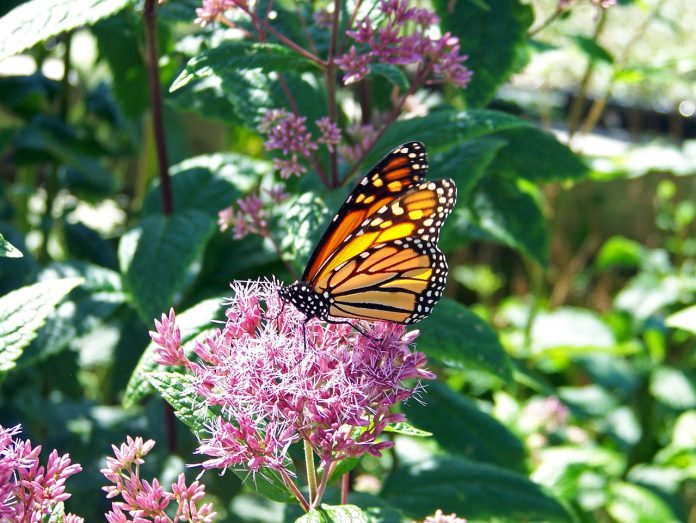Stark Soil and Water recently offered a series of six sessions on how to design and install a rain garden on your property. All of the participants were from a city or suburb. The one group missing from the sessions was farmers. I want to change that for the next round of classes because I believe that rain gardens on farms offer a cornucopia of benefits. I know because I have a rain garden on my dairy farm, and it’s awesome.
What it is
Let’s start with what a rain garden is. It’s a bowl-shaped area filled with native plants designed to temporarily capture rainwater. Think of it this way. Most likely you have on your farm a vegetable garden. Its purpose is to grow tomatoes, cucumbers, peppers, strawberries and other delicious produce. A rain garden is set up to “grow” water by holding back excess rainwater.
How does a rain garden work?
It starts with being located near a water source, usually from an impervious surface like a roof, downspout outlet or gravel driveway. Water is then directed to the rain garden via a swale, channel or natural contours. Because the garden is bowl-shaped, it retains water, which slowly infiltrates into the soil profile or is taken up by water-loving plants.
Based on a kidney-shaped design created by my colleague, Sarah Matheny, I installed my rain garden to accept flow from a gravel driveway. I planted only native species because natives typically have deeper roots, which results in more water being absorbed compared to introduced species.
Based on Sarah’s suggestions, I planted butterfly weed, cardinal flower, fox sedge, great blue lobelia, hoary vervain, lance-leaved coreopsis, swamp milkweed, shooting star, wild hyacinth and white turtlehead. Some species did well while others struggled, and I had to restock approximately 30% of the plants. Because the remaining plants are now firmly established and taken root, I doubt I will have to restock as many this coming spring.
Is it worth it?
Like any activity or operation on a farm, a rain garden takes time and effort to maintain. It needs to be weeded, mulched in spring, restocked with plants for those that didn’t make it and occasionally watered. I get that most farmers don’t have enough time to finish all their chores before the sun sets, especially during planting and harvesting; so, is a rain garden worth it?
The answer is yes.
From a pocketbook perspective, it should save you money. Often, farmhouse and barn downspouts are tied into field tile. By lessening the amount of water flowing through the tile, you are reducing the stress on the tile and increasing its longevity. Also, rain gardens help replenish groundwater, which is particularly beneficial to farmers with wells, and the gardens provide additional habitat for pollinators, which are critical for produce and orchard producers.
From a land stewardship perspective, it reduces pollutants ending up in waterways. Roofs contain pollutants. Birds, insects, squirrels and chipmunks leave fecal matter on roofs, which can end up in downspouts. Water on metal roofs can absorb zinc, cooper, aluminum and other metals; asphalt shingles contain chemicals for waterproofing and weathering treatments; wooden roofs are sprayed for waterproofing and wood rot treatments, and pesticides through atmospheric deposition and precipitation have been found on roofs.
For downspouts connected to field tile, all of these heavy metals and chemicals could eventually empty into a waterway. By preventing this from happening, you are helping to keep bad stuff out of our creeks and streams.
Finally, from a mental health or spiritual perspective, rain gardens provide beauty. This past summer, I often sat on my front porch, drinking a beer and listening to a ballgame while watching hummingbirds and butterflies feast on my rain garden flowers. One word to describe that experience: paradise.
If I have persuaded you to install a rain garden on your farm, the district has an abundance of resources that we would love to share with you. We can also come out to your farm and provide site-specific assistance as to where and how you can establish an awe-inspiring rain garden.
Or, you can register for our 2023 master rain gardener certification course coming this spring. Call us at 330-451-7645 or visit our website, starkswcd.org. We would love to get you started on adding a cost-effective, environmentally friendly, beautiful rain garden to your farm.













